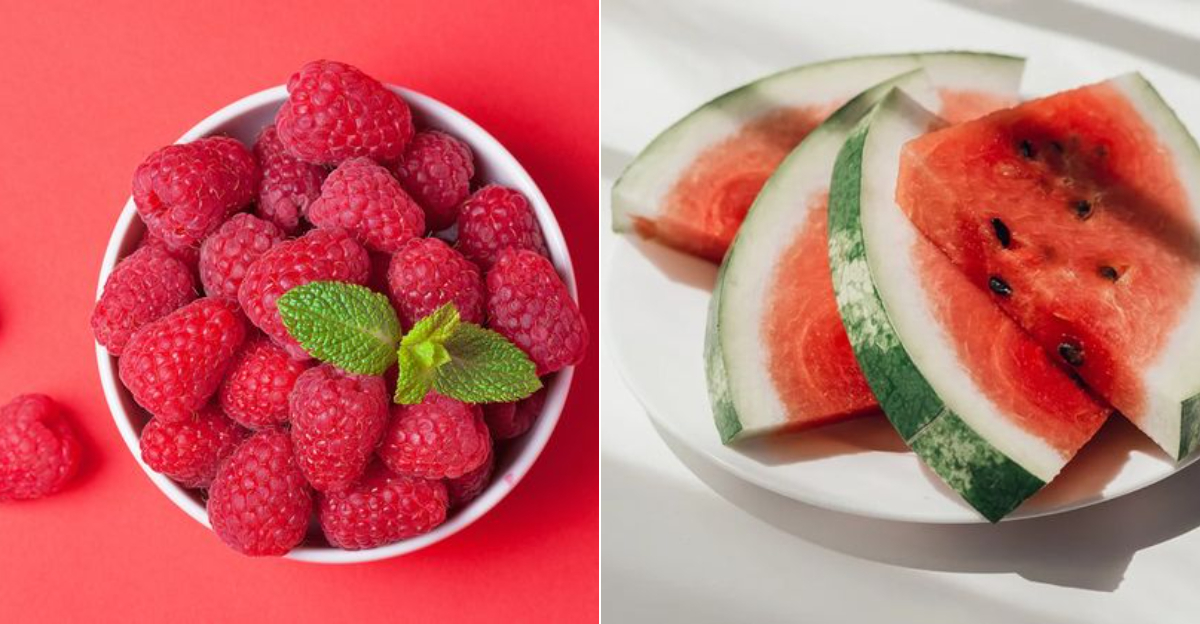7 Fruits You Should Eat More And 6 That Aren’t As Nutritious As You Think

Wondering which fruits deserve more space in your shopping cart? Not all fruits are created equal when it comes to nutrition! Some pack a serious punch of vitamins and antioxidants, while others might be sneaking in more sugar than you bargained for. Ready for some fruity truth bombs that’ll revolutionize your snack game?
13. Blueberries
These tiny blue dynamos are practically wearing capes! Packed with antioxidants that fight aging and improve memory, blueberries deserve VIP status in your fridge.
Despite their small size, they have enormous advantages for blood sugar regulation and heart health. Your brain cells will give you a high five later if you eat them by the handful or sprinkle them over yogurt.
12. Avocados
Technically a fruit (mind blown, right?), avocados bring the good fats to your nutrition party.
Unlike their sugary fruit cousins, they’re loaded with heart-healthy monounsaturated fats that keep you satisfied longer. Your skin, brain, and waistline will thank you for making avocado toast more than just an Instagram trend. Guac on!
11. Kiwi
Move over, oranges! Kiwis contain more vitamin C per ounce than their citrus competitors.
Like nobody’s business, these fuzzy little fruits promote collagen synthesis, iron absorption, and immune function. Your daily need for vitamin C is exceeded with only one kiwi! For added fiber and a burst of flavor, cut them into salads or eat them with the skin on (yes, really!).
10. Pomegranates
Cracking open a pomegranate feels like discovering hidden treasure! Those ruby seeds aren’t just gorgeous – they’re loaded with potent antioxidants that crush inflammation faster than superhero movie sequels hit theaters.
Research suggests pomegranates may help fight arthritis, heart disease, and even certain cancers. Worth the effort of extracting those jewel-like arils, wouldn’t you say?
9. Papaya
Tummy troubles? Papaya might be your new bestie!
Papain, a digestive enzyme found in this tropical treat, breaks down proteins and relieves indigestion more quickly than you can say “antacid.” How wonderful is this marvel of orange? Along with promoting skin health, it also provides vitamins A and C. Incorporate it into smoothies or scoop it straight off the rind for a taste of the tropics!
8. Raspberries
If berries had a beauty pageant, raspberries would win Miss Fiber! With 8 grams per cup, they’re practically a digestive broom, sweeping through your system while tasting like nature’s candy.
Their high fiber-to-sugar ratio makes them weight-loss friendly too. Bonus points: raspberries contain ketones, compounds that may help break down fat cells. Sprinkle these red gems on everything!
7. Guava
In the fruit industry, guavas aren’t given enough credit! These tropical gems provide a staggering 12% of your daily potassium requirements per fruit and have more lycopene than tomatoes, a cancer-fighting powerhouse. All your life, where have these been?
Guavas should take the lead in your fruit rotation since they contain four times the vitamin C of edible oranges and seeds. Sprinkle some chili powder on them and give them a try!
6. Grapes
Though they’re nature’s candy, grapes might deserve a second thought!
A cup packs about 23 grams of sugar – equivalent to almost 6 teaspoons – making them one of the highest-sugar fruits around. While they do contain resveratrol (that heart-healthy compound in red wine), you’d need to eat bucketloads to see benefits. Enjoy these juicy gems in moderation rather than mindless bunch-munching!
5. Watermelon
Summer’s favorite refresher might not be the nutritional heavyweight you imagined! While super hydrating (hello, it’s 92% water), watermelon’s nutritional profile is relatively weak compared to other fruits.
What’s the scoop? Its high glycemic index means rapid blood sugar spikes.
Though it contains lycopene, you’d need massive amounts to reap significant benefits. Save this juicy treat for occasional enjoyment rather than daily consumption!
4. Coconut
The health benefits of coconut may be exaggerated! Despite the popularity of coconuts, this tropical fruit is high in saturated fat, which, when ingested in excess, elevates cholesterol.
While coconut oil’s medium-chain triglycerides (MCTs) offer certain advantages, whole coconut flesh is high in calories and low in vitamins. Savor the distinct taste once in a while, but don’t take it for granted every day!
3. Dried Fruits
Raisins, dried mangoes, and their dehydrated friends might seem like healthy snacks, but they’re essentially sugar bombs! Removing water concentrates sugars and calories into tiny packages that are too easy to overeat. Just 1/4 cup of dried cranberries packs more sugar than a chocolate chip cookie!
While they retain some vitamins, the sugar rush and calorie density make them more dessert than healthy food. Portion control is key!
2. Fruit Juices
Although juices are technically not full fruits, many people mistakenly believe they are. Juicing eliminates fiber while concentrating sugars, resulting in a blood sugar spike without the benefits of whole fruit’s fullness.
Three to four apples’ worth of sugar, but none of the filling fiber, can be found in an 8-ounce glass of apple juice. It is processed by your body more like soda than fruit.
Limit yourself to minimal amounts of freshly squeezed juice or entire fruits!
1. Bananas
Contrary to popular belief, bananas aren’t the ultimate potassium powerhouse! While they do contain this important mineral, avocados, spinach, and white beans actually offer more per serving.
Bananas also pack more sugar and calories than many fruits. Though convenient and tasty, their reputation exceeds reality. Enjoy these curved yellow treats in moderation rather than daily, especially if watching blood sugar or weight!
